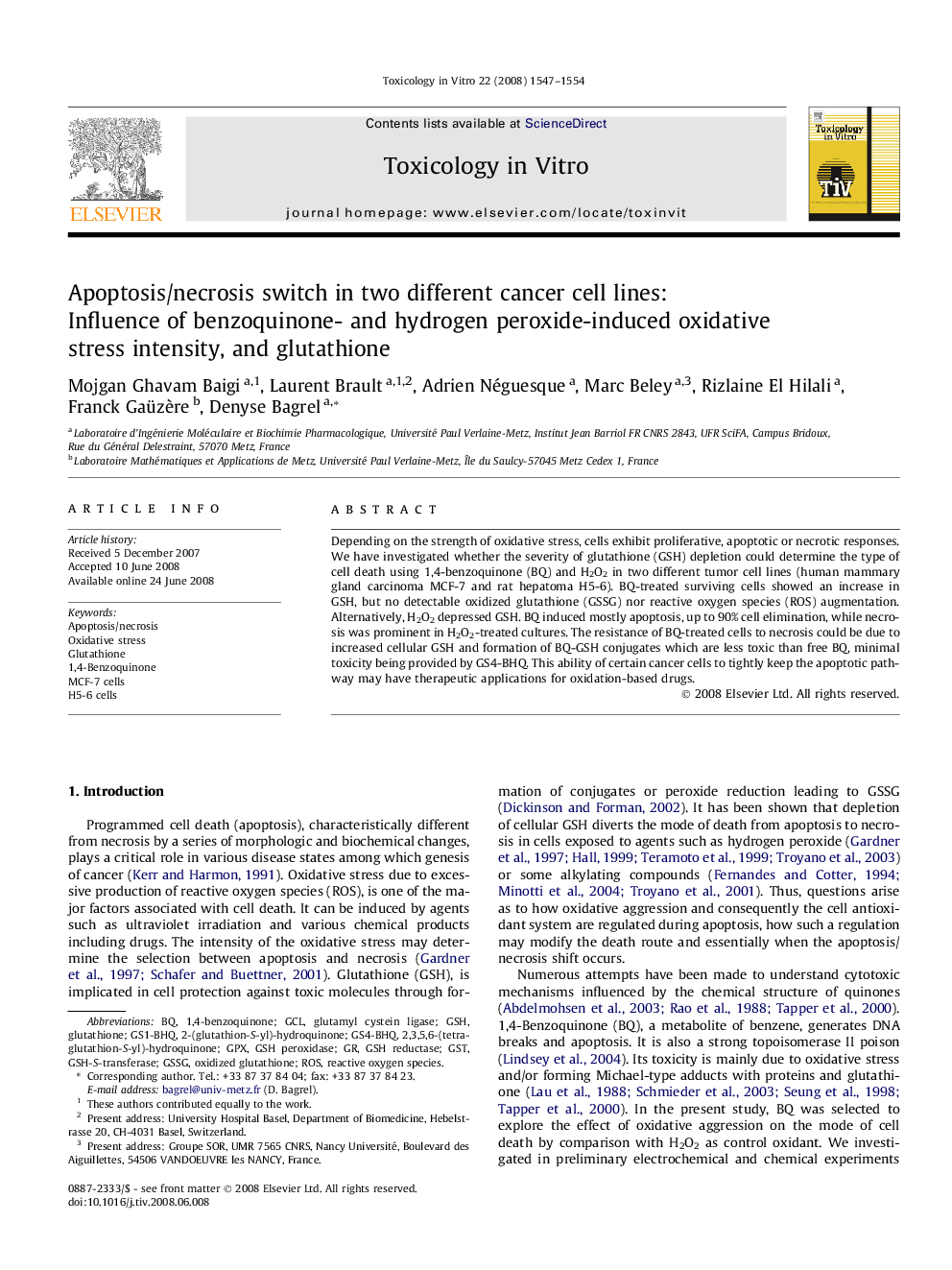| Article ID | Journal | Published Year | Pages | File Type |
|---|---|---|---|---|
| 2603100 | Toxicology in Vitro | 2008 | 8 Pages |
Depending on the strength of oxidative stress, cells exhibit proliferative, apoptotic or necrotic responses. We have investigated whether the severity of glutathione (GSH) depletion could determine the type of cell death using 1,4-benzoquinone (BQ) and H2O2 in two different tumor cell lines (human mammary gland carcinoma MCF-7 and rat hepatoma H5-6). BQ-treated surviving cells showed an increase in GSH, but no detectable oxidized glutathione (GSSG) nor reactive oxygen species (ROS) augmentation. Alternatively, H2O2 depressed GSH. BQ induced mostly apoptosis, up to 90% cell elimination, while necrosis was prominent in H2O2-treated cultures. The resistance of BQ-treated cells to necrosis could be due to increased cellular GSH and formation of BQ-GSH conjugates which are less toxic than free BQ, minimal toxicity being provided by GS4-BHQ. This ability of certain cancer cells to tightly keep the apoptotic pathway may have therapeutic applications for oxidation-based drugs.
